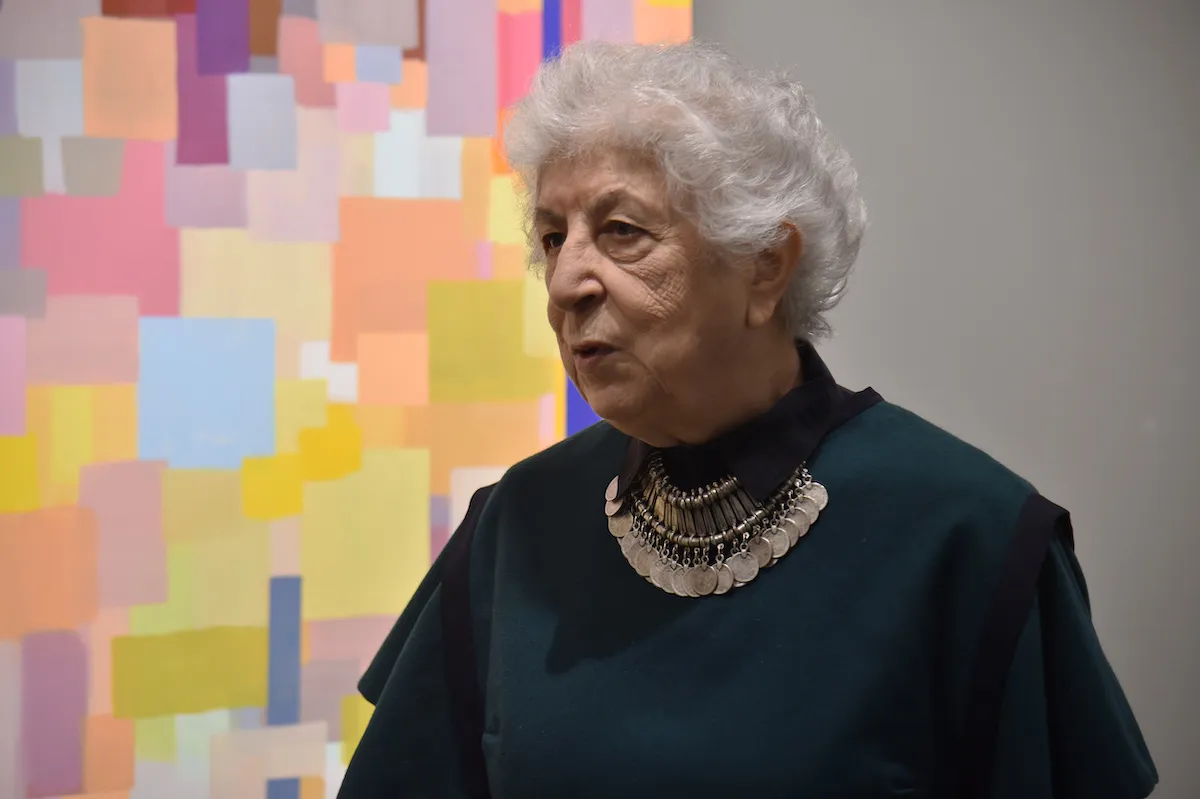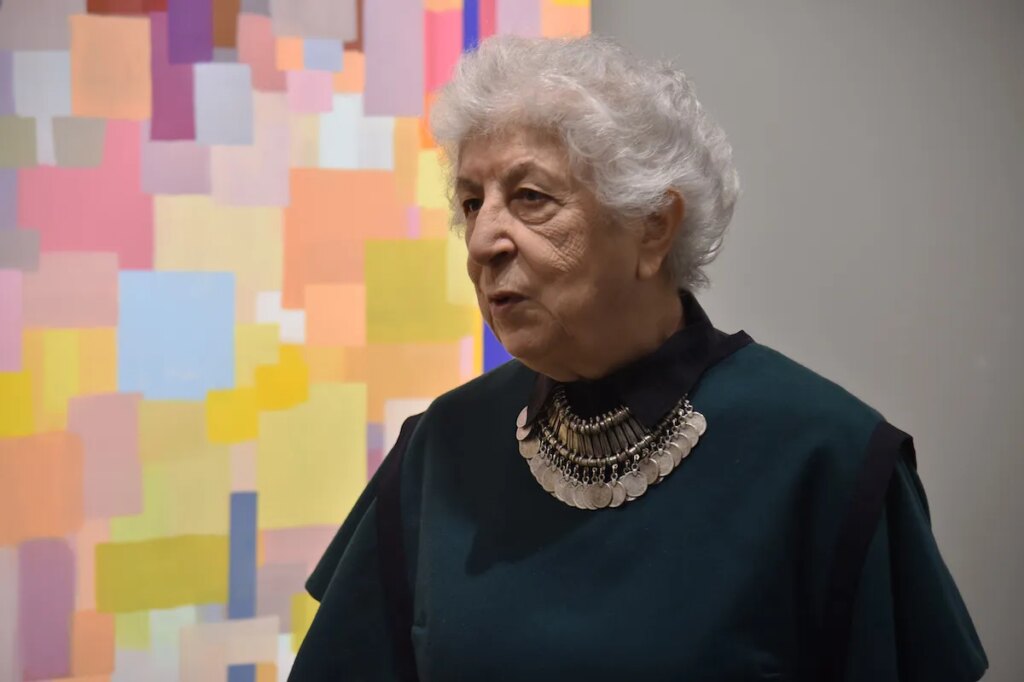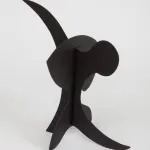
Indiana University’s Eskenazi Museum of Art has reportedly canceled a career-spanning survey for Samia Halaby, a Palestinian artist known for her abstract paintings.
Halaby, who is currently the subject of a larger retrospective in Sharjah, United Arab Emirates was to see her 35-work show open in February. But, speaking to Hyperallergic, Madison Gordon, a board member of the artist’s foundation, said that Indiana University decided not to open the show as planned because of “safety concerns.”
A representative for Indiana University said in a statement that “academic leaders and campus officials canceled the exhibit due to concerns about guaranteeing the integrity of the exhibit for its duration.”
On Instagram, Halaby posted a portrait of herself that appears in the exhibition’s catalogue, writing that “we hope they reverse their decision.”
In a December 27 letter to Indiana University president Pamela Whitten that was reviewed by ARTnews, Halaby wrote that the cancelation comes “at a time when Palestinian civilians are being massacred, starved, and displaced by the millions in Gaza; in what is one of the largest human rights catastrophes this century. Nearly every country in the UN, all major human rights organizations, and a majority of Americans want to see a ceasefire. I as a Palestinian, who was born in Jerusalem and survived the Nakba at age 11 in 1948, and someone who has for decades engaged in activism and advocacy for the life, safety, and self-determination of my people, what is being inflicted on the people of Gaza carves a deep wound. As a Palestinian and woman artist practicing in the United States, I am not a stranger to racism and sexism of the art world. As I and Palestinians everywhere are experiencing tremendous grief we turn to our friends.”
On Instagram, Halaby urged her followers to sign a petition for the show’s reinstatement, the text of which labels the cancelation an attempt by the school “to distance itself from the cause of Palestinian freedom.” More than 3,000 people have signed the petition.
A spokesperson for the Broad Art Museum at Michigan State University, where Halaby received a master’s degree in painting, confirmed that the show will still travel there this June. (Halaby also received an MFA from Indiana University.)
For more than five decades, Halaby has been producing abstractions filled with bursts of color; some have been made with the help of computers. Her achievements lie beyond the field of painting, however: she became the first female full-time faculty member at the Yale School of Art during the ’70s, and she has also written on Palestinian art, publishing a history of it as a book in 2001.
On social media, Halaby has frequently voiced support for Palestine, particularly during the past few months. One post from October that received several hundred likes calls for the liberation of “the Gaza concentration camp.” Another from last week features a caption that reads, “Stay focused on the international implications of resistance. Coordinate solidarity.”
News of the Halaby show’s cancelation at Indiana University became public as the school was already facing scrutiny. On Wednesday, the Herald-Times reported that the university had suspended professor Abdulkader Sinno, who helped a Palestinian students’ union host an event by a former IDF soldier who has been publicly critical of Israel. The university’s vice provost reportedly claimed that Sinno had not obeyed standard procedure when he aided in the organization of the event. Sinno told the Herald-Times that the school’s suspension of him was part of an effort to “chill academic freedom and legitimate free speech on Palestinian human rights.”
Update 1/11/24, 11:35 a.m.: This article has been updated with a quotation from a letter by Halaby to Indiana University leadership, as well as confirmation that the show will travel to Michigan. Additionally, the number of signatories on the petition to reinstate Halaby’s show in Indiana has been updated.


